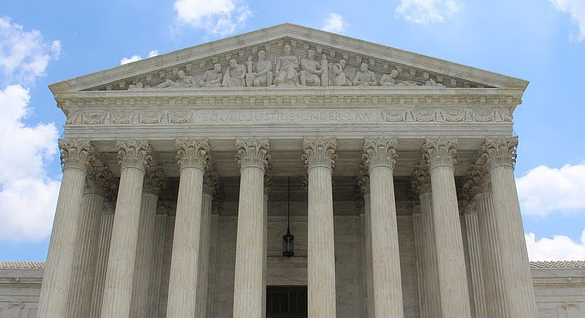D.C. Court of Appeals Blasts IRS
By John Alan Cohan, Attorney at Law
An IRS scandal is back in the news. The function of the IRS is to help American taxpayers understand and meet their tax responsibilities, and to apply the Tax Code with integrity and fairness to all. Occasionally one might encounter a bad IRS agent who makes a false statement under oath, discloses confidential information about a taxpayer without proper authority, or falsifies or destroys records. One of the most egregious things a rogue agent might do is to retaliate against or harass a taxpayer.

A remarkable decision involving the IRS was handed down on August 5, 2016, in which the U.S. Court of Appeals for the D.C. Circuit rebuked the IRS for discriminating against conservative groups by impeding their applications for tax exempt status.
The case involved various organizations that had filed applications with the IRS for tax exempt status as charitable or educational organizations. Instead of processing these applications in the normal course of IRS business, the IRS selected these applicants for more rigorous review based on their names, which in each instance suggested certain conservative political orientations. IRS employees delayed, denied and generally mishandled the applications of disfavored applicants.
Organizations that were critical of Obamacare were targeted, as well as Tea Party applicants. Hundreds of organizations were subjected to improper harassment and invasive requests for political and financial information.
As is now well-known, the IRS engaged in a “targeting scheme” that identified applicants associated with conservative causes for enhanced scrutiny. This involved a multi-review process, harassing questions, and burdensome requests for information (including donor lists, and internet passwords and usernames).
Many of the requests were outrageous: For example, requests were made for a list of all issues that are important to the organization and to indicate the organization’s position regarding these issues. Requests were also made to identify the political affiliation of the officer, director, speakers, and candidates supported by the organization. The applicants claimed that the IRS conducted unauthorized inspection of information improperly obtained from them.
The Court of Appeals said that the IRS utterly failed in its mission by handling exemption applications from persons of disfavored viewpoints, giving the appearance that the IRS was not impartial in conducting its mission.
For the IRS to impose different standards of scrutiny depending upon the viewpoint of the applicants is a blatant violation of the First Amendment. The Supreme Court has stated that the IRS may not “discriminate invidiously in such a way as to aim at the suppression” of ideas, or to target particular views or specific ideology or opinions.
Each year, on average, there are about 3,000 formal investigations of IRS employees accused of misconduct against taxpayers.
Complaints against IRS employees may be made by using IRS Form 12217, called “Section 1203 Allegation Referral Form,” or by calling the Treasury Department Tax Integrity Hot Line at (800) 366-4484. The most common complaints are harassment, retaliation, false statements under oath, falsification of documents, threat of audit, unauthorized inspection of tax returns, and covering up acts of incompetence that caused harm to the taxpayer.
There is an alarming number of criminal cases involving IRS employees for receiving bribes from taxpayers, engaging in widespread identity theft or fraudulent tax refund schemes.
The impartial operation of the tax laws is essential in order for the system to succeed and for taxpayers to have confidence in the fair and impartial administration of the tax laws. IRS employee misconduct not only erodes the public’s trust, but also undermines the IRS’s ability to deliver taxpayer service and to effectively enforce tax laws.
[John Alan Cohan is an attorney representing people in federal and state tax disputes, IRS appeals, and Tax Court litigation, and is a long-standing author of a legal advice column published in numerous sporting magazines. In addition, he advises

organizations on compliance with newly enacted laws and regulations. John is also author of the book, Turn Your Hobby Into A Business — The Right Way. He can be reached at: (310) 278-0203, or email at johnalancohan@aol.com. His website is JohnAlanCohan.com.]






















































